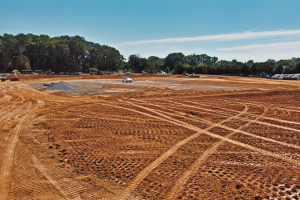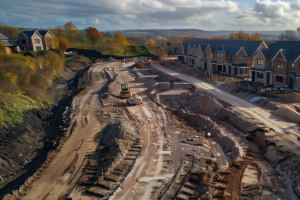What Is Land Entitlement?
Land entitlement is the legal process of preparing raw land for development by securing the necessary approvals like zoning changes, utility access, road permits, and environmental sign-offs.
It’s a critical step for any developer or builder and it can significantly increase the market value of your land.
Why It Matters When Selling Land for Development
Most raw land can’t be developed immediately. Builders want land that’s:
- Zoned correctly (e.g. from agricultural to residential)
- Cleared for utilities and road access
- Approved for future use by local planning authorities
If your land isn’t entitled yet, many buyers will walk away—or offer far less.
That’s where Tract Land Development comes in.



How Tract Handles Entitlements for You
We specialize in purchasing land that still needs entitlements and we handle the entire process at our expense.
Here’s what we do after you accept our offer:
- Conduct feasibility studies
- Begin the rezoning or variance request process
- Coordinate with city/county planning departments
- Handle engineering, surveys, environmental reports, and access
- Submit plats, subdivision applications, or site plans
You don’t pay for any of this. We handle it post-contract during due diligence.
Benefits to You as the Seller
- Get 3–5x higher price for your land because we can entitle it
- Avoid the time, money, and complexity of permits
- Sell as-is and we buy the land with no improvements
- Work with an expert who knows the development process

Land Development—The Entitlement Process Explained
The land entitlement process is a critical step in transforming raw land into a development-ready property and it’s often the most complex. At Tract Land Development, we handle this process on your behalf, managing all the moving parts so you don’t have to.
Here’s what the typical land entitlement process looks like:
Contract Initiation
After a purchase agreement is executed by a landowner and Tract, we begin a feasibility study. Our team and engineering partners create layout options based on the land’s unique potential. We present the best layout to the local jurisdiction during a Pre-Application Conference. If adjustments are needed, we revise the plan to meet all requirements. This process confirms the property’s viability and ensures it’s positioned for successful development.
Prepare Land Use Application
Tract Land Development and our engineering partners gather essential site data and create a proposed layout to form the Land Use Application. This includes items such as a boundary survey, topography, traffic study, utility and grading plans, drainage and stormwater reports, and a written project narrative. Additional consultants may be involved to complete mapping, preservation plans, and other required documentation.
Land Use Application Complete
Once submitted, the jurisdiction reviews the Land Use Application to confirm all required materials are included. If anything is missing or additional details are needed, they will request it before proceeding with the formal review and approval process.
Land Use Application Approval
Once deemed complete, the Land Use Application enters the approval phase often referred to as Preliminary Plat Approval. Depending on the project, this may involve staff review, public hearings, and approvals from the planning commission and/or city council.
Prepare Construction Drawings
Following land use approval, Tract Land Development and our engineering consultants begin preparing detailed construction drawings. These include site-specific plans for grading, utilities, drainage, roadways, and other infrastructure needed to move the project into development.
Construction Drawings Approval
The jurisdiction reviews the civil engineering plans and coordinates any required revisions with our team. Once approved, a pre-construction meeting is held with Tract Land Development, our engineers, and contractors to finalize the project schedule. With approvals in place, construction is ready to begin.
Final Notes on the Entitlement Process
The steps above outline how land entitlement works before closing and construction. However, each project and jurisdiction is unique. Some properties may require additional steps such as rezoning, annexation, or other approvals based on site conditions. This may take 6 to 12 months or longer to complete.
Still Have Questions About The Land Entitlement Process or The Value of Your Land?




